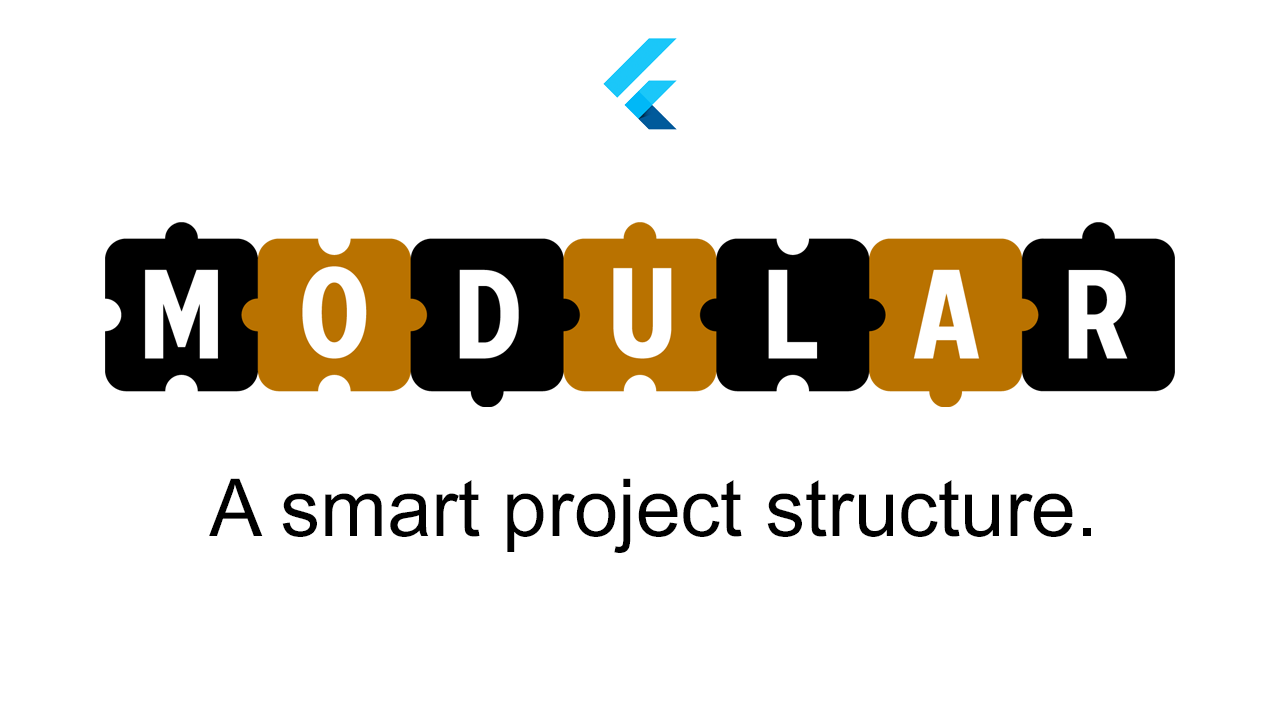flutter_modular 6.4.1  flutter_modular: ^6.4.1 copied to clipboard
flutter_modular: ^6.4.1 copied to clipboard
Smart project structure with dependency injection and route management
Flutter Modular #

Let's find out how to implement a Modular structure in your project.
What is Modular? #
Modular proposes to solve two problems:
- Modularized routes.
- Modularized Dependency Injection.
In a monolithic architecture, where we have our entire application as a single module, we design our software in a quick and elegant way, taking advantage of all the amazing features of Flutter💙. However, producing a larger app in a "monolithic" way can generate technical debt in both maintanance and scalability. With this in mind, developers adopted architectural strategies to better divide the code, minimizing the negative impacts on the project's maintainability and scalability..
By better dividing the scope of features, we gain:
- Improved understanding of features.
- Less breaking changes.
- Add new non-conflicting features.
- Less blind spots in the project's main business rule.
- Improved developer turnover.
With a more readable code, we extend the life of the project. See example of a standard MVC with 3 features(Auth, Home, Product):
A typical MVC #
.
├── models # All models
│ ├── auth_model.dart
│ ├── home_model.dart
│ └── product_model.dart
├── controller # All controllers
│ ├── auth_controller.dart
│ ├── home_controller.dart
│ └── product_controller.dart
├── views # All views
│ ├── auth_page.dart
│ ├── home_page.dart
│ └── product_page.dart
├── core # Tools and utilities
├── app_widget.dart # Main Widget containing MaterialApp
└── main.dart # runApp
Here we have a default structure using MVC. This is incredibly useful in almost every application.
Let's see how the structure looks when we divide by scope:
Structure divided by scope #
.
├── features # All features or Modules
│ ├─ auth # Auth's MVC
│ │ ├── auth_model.dart
│ │ ├── auth_controller.dart
│ │ └── auth_page.dart
│ ├─ home # Home's MVC
│ │ ├── home_model.dart
│ │ ├── home_controller.dart
│ │ └── home_page.dart
│ └─ product # Product's MVC
│ ├── product_model.dart
│ ├── product_controller.dart
│ └── product_page.dart
├── core # Tools and utilities
├── app_widget.dart # Main Widget containing MaterialApp
└── main.dart # runApp
What we did in this structure was to continue using MVC, but this time in scope. This means that each feature has its own MVC, and this simple approach solves many scalability and maintainability issues. We call this approach "Smart Structure". But two things were still Global and clashed with the structure itself, so we created Modular to solve this impasse.
In short: Modular is a solution to modularize the route and dependency injection system, making each scope have its own routes and injections independent of any other factor in the structure. We create objects to group the Routes and Injections and call them Modules.
Ready to get started? #
Modular is not only ingenious for doing something amazing like componentizing Routes and Dependency Injections, it's amazing for being able to do all this simply!
Go to the next topic and start your journey towards an intelligent structure.
Common questions #
-
Does Modular work with any state management approach?
- Yes, the dependency injection system is agnostic to any kind of class including the reactivity that makes up state management.
-
Can I use dynamic routes or Wildcards?
- Yes! The entire route tree responds as on the Web. Therefore, you can use dynamic parameters, query, fragments or simply include a wildcard to enable a redirect to a 404 page for example.
-
Do I need to create a Module for all features?
- No. You can create a module only when you think it's necessary or when the feature is no longer a part of the scope in which it is being worked on.
Getting started with Modular #
Features and bugs #
Please send feature requests and bugs at the issue tracker.
This README was created based on templates made available by Stagehand under a BSD-style license.
This project follows the all-contributors specification. Contributions of any kind are welcome!


